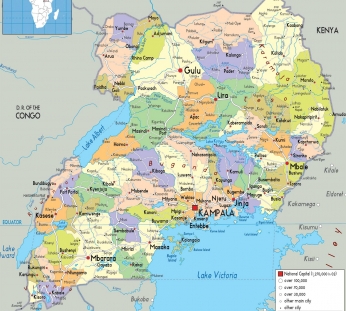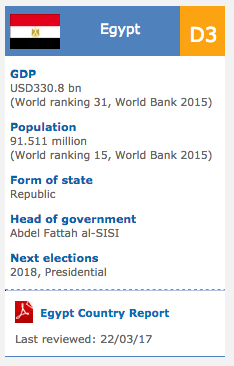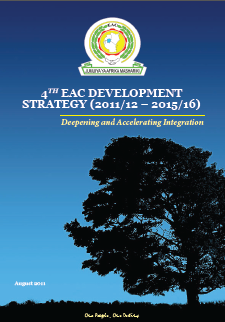-
Africa’s economic growth in 2016 was driven by East Africa
While the continent’s major economies were hit by the fall in commodity prices in 2016, Africa retained its position as the second-fastest growing continent globally recording an average of 2.2% GDP increase, behind only South Asia, according to the African Development Bank Group (AfDB).
Much of Africa’s increase in 2016, AfDB says, was driven by East Africa where several nations recorded “strong performances.” In general, of the continent’s sub-regions, East Africa posted the highest increase rate with 5.3%, led by Ethiopia.
More > -
Africa property offers rich pickings for the brave
Some property pundits believe there are major opportunities for investors or companies on the continent.
While most pundits will acknowledge that the saying “Africa is not for sissies” rings authentic at the same time as it comes to property investment , some commentators believe that there are major opportunities for investors on the continent.
More > -
Bill Gates sees US likely to maintain aid levels for Africa
The US will probably maintain its current levels of aid to Africa despite President Donald Trump’s proposals to slash funding, according to Bill Gates, the world’s richest man.
Trump said in May his government would no longer allocate funding for family planning, a move that has the potential to undermine aid programs in the poorest nations in the world. However, with Congress in control of the budget, it’s unlikely that all cuts proposed by the Trump government will go ahead next year, Gates said in an interview in Dar es Salaam, Tanzania’s commercial capital.
More >
- Key Facts
-
Full name: Republic of Uganda
Population: 33.8 million (UN, 2010)
Area: 241,038 sq km (93,072 sq miles)
Major languages: English (official), Swahili (official), Luganda, various Bantu and Nilotic languages
Major religions: Christianity, Islam
Life expectancy: 54 years (men), 55 years (women) (UN)
Monetary unit: 1 Ugandan shilling = 100 cents
Main exports: Coffee, fish and fish products, tea; tobacco, cotton, corn, beans, sesame
GNI per capita: US $500 (World Bank, 2010)
Internet domain: .ug
International dialling code: +256
-

Africa's Relationship With China Is Ancient History
2017/07/02In 2002 South Africa's Parliament unveiled a digital reproduction of a map - of China, the Middle East and Africa - that some speculated could be the initial map of the African continent. The Da Ming Hun Yi Tu - the Comprehensive Map of the Great Ming Empire - was drawn up around 1389 during the Ming Dynasty, according to historian Hyunhee Park.
-

Climate change laws around the world
2017/05/14There has been a 20-fold increase in the number of global climate change laws since 1997, according to the most comprehensive database of relevant policy and legislation.
The database, produced by the Grantham Research Institute on Climate Change and the Environment and the Sabin Center on Climate Change Law, includes more than 1,200 relevant policies across 164 countries, which account for 95% of global greenhouse gas emissions.
-

Africa’s 20 most attractive countries for investors – Ernst & Young
2016/05/16Despite its economy slowing down, South Africa remains Africa’s most attractive country for investors, according to the 2016 Ernst & Young Africa Attractiveness Index.
The statement evaluates evolution made in governance, diversification, infrastructures, business enablement, human development inclunding resilience to current macroeconomic challenges.
Morocco is ranked second on the index, followed by Egypt, Kenya, Mauritius, Ghana Botswana, Tunisia and Rwanda. Cote d’Ivoire comes tenth.
Africa’s top economy, Nigeria comes 15th, mainly because of its poor performances in terms of governance and human improvment(See full ranking below).
-

Africa: Making Things Happen at the Bank - 'Not a Talk Shop' - Akin Adesina
2017/07/02Dr. Akinwumi Adesina is focusing on five areas to achieve the African and world goals for a prosperous continent since becoming president of the African Development Bank - Africa's major public financial institution in September 2015. He was a keynote speaker at this month's Corporate Council on Africa's U.S.- Africa Business Summit in Washington D.C. and moderated a lively panel with five African government ministers. He as well received the Gene White Lifetime Succcess Award from the World Child Nutrition Foundation. This week, he was named the 2017 recipient of the World Food Prize, a prestigious honor that includes a $250,000 award. In an interview in Washington, DC, Adesina discussed the Development Bank's ambitious schedule and his vision for attracting the increase capital Africa needs. Posting questions for AllAfrica was Noluthando Crockett-Ntonga.
-
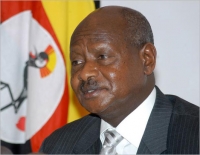
President Yoweri Museveni
2012/12/19In his first public comments on the bill for some time, President Yoweri Museveni as well said that homosexuality should not be promoted.
The original version of the bill stipulated the death penalty for some homosexual acts but this has reportedly been dropped.
Homosexual acts are illegal in Uganda.
The BBC's Catherine Byaruhanga says the government has always stressed that the bill was introduced by an individual MP and was not official policy.
-
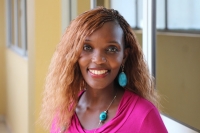
Jean Byamugisha, Executive Director of the Uganda Hotel Owners Association
2015/12/02Spectacular wildlife, welcoming people, political stability and untouched potential in need of international expertise are part the reason why Jean Byamugisha, Executive Director of the Uganda Hotel Owners Association, invites the world beyond its borders approaching to Uganda for a incomparable, personal, and truly African experience.
Considered one of the safest nations in Africa, Uganda has become an attractive place for investors and businessmen. What are the key strengths of Uganda’s success over the completed few years?
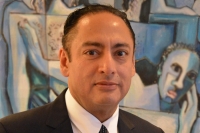
Madhvani Group – Marasa Africa Exceptional opportunities in Uganda’s tourism sector
2015/10/29Roni Madhvani, Director of the Madhvani Group, Uganda’s major conglomerate with a total investment base in excess of $1 billion and businesses spanning agriculture, construction, hotels and insurance to name a few, discusses the vast potential for investors in the country’s tourism sector.
Could you tell us the key steps of the evolution of Madhvani Group over the last century?
-
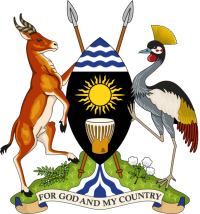
Outlook for 2013-17
2013/08/12The country (Uganda) is situated in Eastern Africa, west of Kenya.
It has borders with Congo (Kinshasa) for 765km, Kenya for 933km, Rwanda for 169km, Sudan for 435km and Tanzania for 396km.
Land in Uganda is mostly plateau with rim of mountains.The climate is tropical; generally rainy with dry seasons (December to February, June to August); semiarid in northeast.(most widely used of the Niger-Congo languages, preferred for native language publications in the capital and may be taught in school), other Niger-Congo languages, Nilo-Saharan languages, Swahili, Arabic.
Overview
The president, Yoweri Museveni, and his National Resistance Movement (NRM) will continue to dominate the political scene following a resounding victory in the February 2011 elections. There may be some limited outbreaks of civil unrest, but Mr Museveni has total control of the security forces, making wider political instability unlikely. Inflation is estimate to average 6.7% in 2013-15 owing to stable commodity prices and fiscal tightening. We expect it to increase to 15.4% in 2016 on the back of pre-election spending, before easing in 2017. The current-account deficit as a % of GDP is estimate to remain in double digits as import costs continue to increase owing to request for capital imports for infrastructure projects, notably in the energy sector.
-
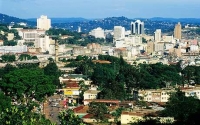
Kampala
2012/12/19Kampala is the largest city and capital of Uganda. The city is divided into five boroughs that oversee local planning: Kampala Central Division, Kawempe Division, Makindye Division, Nakawa Division and Lubaga Division. The city is coterminous with Kampala District.
In 2001, the city limits were substantially expanded to include many of the surrounding communities within the city; including: Namirembe, Naakulabye, Kasubi, Bwaise, Kawempe, Kikaaya, Mpererwe, Lubaga, Nateete, Busega, Mutundwe, Ndeeba, Katwe, Kibuli, Kabalagala, Ntinda, Kiwaatule, Kisaasi; Najjanankumbi; Nakawa, Kyambogo, Nagulu, Bugoloobi, Mbuya, Luzira, Port Bell and Butabika.
The eastern and northeastern suburbs of Banda, Kireka, Bweyogerere, Namanve Kirinnya, Namugongo, Kyaliwajjala, Bulindo and Nsasa, among others, were carved out into a separate municipality called Kira Municipality. Today, Kira Municipality is the second largest town in Uganda with an estimated population of about 180,000 in 2011.
- Uganda News
-
- ECONOMY: Africa’s economic growth in 2016 was driven by East Africa
- REAL ESTATE: Africa property offers rich pickings for the brave
- SOCIAL / CSR: Bill Gates sees US likely to maintain aid levels for Africa
- EVENT: Africa: Graca Challenges Women, Girls to Grab Emerging Opportunities
- PETROLEUM / MINING : Museveni, Magufuli Reaffirm Political Will for Oil Pipeline
- SOCIAL / CSR: South Sudanese refugees in Uganda near million mark
- Trending Articles
-
- BOTSWANA: Bill Gates sees US likely to maintain aid levels for Africa
- NIGERIA: The city that won't stop growing, Lagos
- EUROPEAN UNION: UK seeks to 'align' with EU on data protection rules
- ANGOLA: Buhari Among African Presidents Who Lack Faith in Own Health Systems
- PAKISTAN: Qatar launches new direct sea route to Pakistan
- BOTSWANA: Africa’s economic growth in 2016 was driven by East Africa











